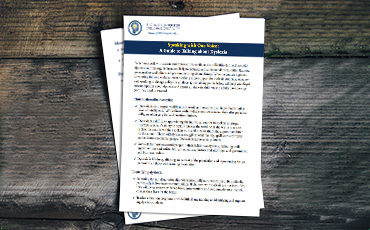Toolkit for Parents, Educators and Students
You can help those with dyslexia get the support they need to reach their full potential. Simple actions can raise awareness and lead to policy changes, such as helping more people understand what dyslexia is and using the word dyslexia rather than lumping it together with broad learning disabilities. The items in this toolkit will help you get started by spreading the word through social media; speaking up about the scientific nature of dyslexia, and advocating for widespread screening, diagnosis, intervention and accommodations for dyslexic children and adults.
The more people understand what dyslexia is and isn’t, the more support we will see for those struggling to overcome it.
Toolkit items:
- Speaking with One Voice: A Guide to Talking about Dyslexia
- Dyslexia Awareness Social Media Toolkit (Sample Tweets, Facebook Posts and Memes)
- Dyslexia Awareness posters, postcards and background materials (includes Declaration of Rights poster and dyslexia one-pager).

Talking About Dyslexia Guide
Use these talking points to dispel misconceptions and ensure all dyslexic individuals receive intervention and support.
Read More
Social Media Awareness Campaign
Use these Tweets, posts and memes to help raise awareness about what dyslexia is and isn't.
Read More
What You Can Do
Simple, but crucial steps parents, educators and dyslexic individuals can take to raise awareness about dyslexia.
Read More1 in 5 people have dyslexia. It crosses racial, ethnic, and socioeconomic lines. You are part of a community of successful people who overcame dyslexia. Speak up about your dyslexia to teachers, school heads, peers, colleagues, and employers.
